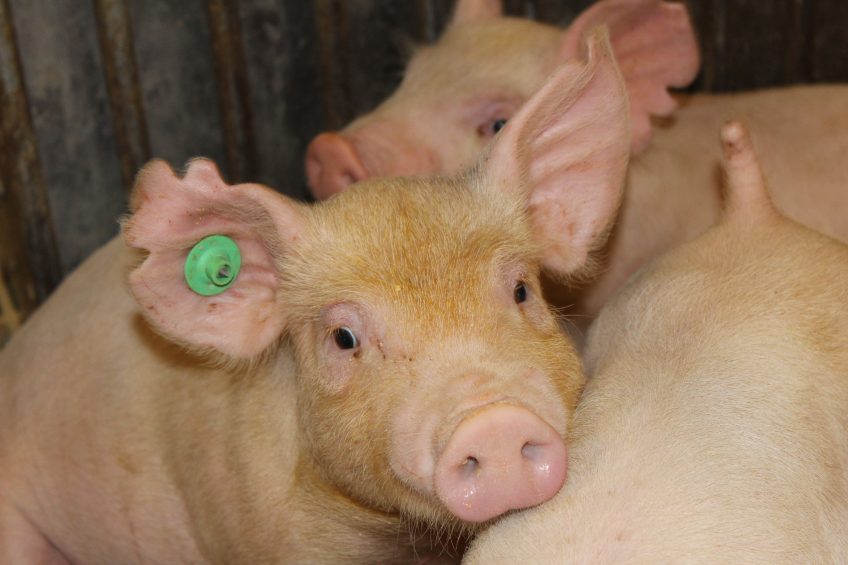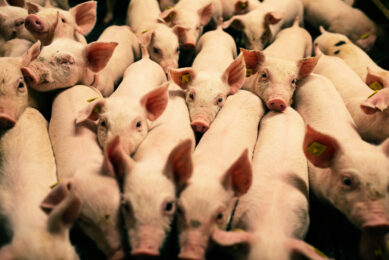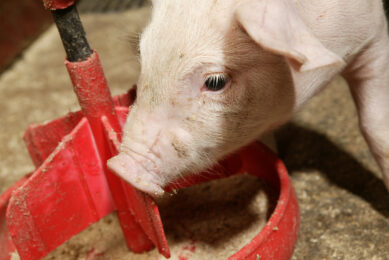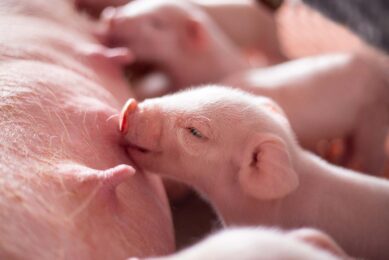Benefits of cortisol against weaning stress

US researchers are working to reduce the effects of stressors on weaning pigs by exploring how the anti-inflammatory drug cortisol and its agonists can regulate a pig’s immune system, allowing it to grow normally.
Weaning is the most stressful period in a pig’s life, which results in a post-weaning growth lag. During this period, piglets are exposed to social, environmental, and nutritional stresses. These stressors elicit an exaggerated immune response in the piglets. Although a certain degree of immune response is beneficial, an exaggerated immune response appears to become detrimental to the animals, leading to compromised digestive physiology, reduced growth performance, and the production of less resilient piglets. These less resilient pigs experience exaggerated or prolonged physiological and psychological responses to stressors later in life. It is now known that the immunopathology caused by a pig’s immune response can have a more severe and prolonged effect on pig productivity than the direct damage caused by pathogens.
Capabilities of cortisol
The anti-inflammatory effects of cortisol and its agonists have been well documented. As such, they might be expected to negate the post-weaning growth lag, since they are a part of a negative feedback mechanism that prevents the immune system from overreacting. However, high and chronic levels of cortisol, as a stress hormone, have deleterious effects on productivity. In an attempt to reduce the deleterious effects of CRH-ACTH-Cortisol as a stress hormone cascade, a study blocked the secretion of cortisol by vaccinating newly weaned pigs against corticotrophin releasing hormone (CRH). Here it was a surprise to learn that blocking CRH-ACTH-Cortisol reduced the growth rate of weaned piglets.
The hypothesis was then developed that the negative consequences of stress are not caused by elevated CRH-ACTH-Cortisol, but rather the negative effects of stress can be ameliorated by increasing glucocorticoid levels. In the laboratory, when newly weaned pigs were treated with a cortisol agonist, a significant increase in growth rates and improved feed efficiency was observed. Collectively, it was postulated that the administration of cortisol agonists would prevent stress-induced growth lag and health checks after weaning.
Beating post-weaning growth deficits
Now, in research funded by the United States Department of Agriculture’s National Institute of Food and Agriculture (NIFA), a new hypothesis is going to be tested at Texas Tech University. Can cortisol agonists reduce the post-weaning growth lag by reducing inflammation and the severity of immune responses? Thus, cortisol agonists can mitigate the negative effects of hyper-activation of the immune system and prevent the growth lag of newly weaned pigs. Furthermore, cortisol agonists will improve digestive physiology, immunocompetence, overall productivity and robustness of the pigs, and thus reduce the need for the use of antibiotics as a growth promoter.
The long-term goal is to develop strategies to minimise the impact of stress (both environmental and immunological) on newly weaned pigs, which can lead to the production of more resilient and robust pigs. The specific objectives of the purposed study are:
- To evaluate the longitudinal effects of cortisol agonists on the productivity of weaning pigs fed antibiotic-free diets under controlled environment conditions.
- To determine the best route of cortisol agonists administration (intramuscular injection vs. water or in-feed).
- To determine underlying mechanisms through which cortisol agonists improves growth performance and robustness in weaned pigs.
- To evaluate the longitudinal effects of cortisol agonists on the productivity of pigs under commercial conditions in diets free from and including antibiotics.
Following the completion of experiments in a controlled environment, the project will then look at expanding the treatment of cortisol agonists to the swine industry by repeating this in an industrial setting.
References available on request











